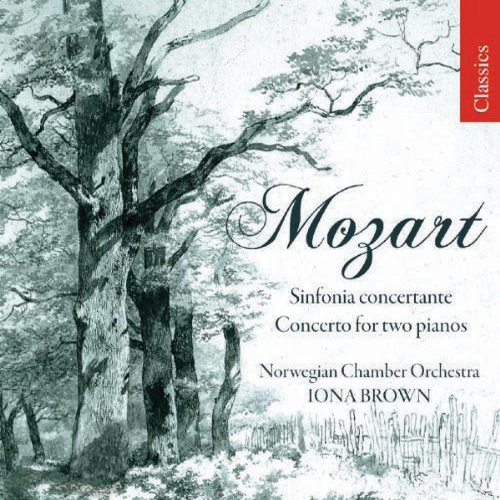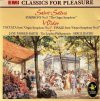Charles Rosen's
The Classical Style, perhaps?

en.wikipedia.org
C. Rozen says,
"There is a belief, which I do not share, that the greatest artists make their effect only when seen against a background of the mediocrity that surrounded them: in other words, the dramatic qualities of Haydn, Mozart and Beetohaven are due to their violation of the patterns to which the public was conditioned by their contemporaries."
While this is a very interesting opinion by itself, note how I formulated my query in my previous post. Not
dramatic effect, but
ironic.
Of course Herr Harnoncourt laments about people who smile and giggle when hearing Mozarts Symphonies (how can they, filthy plebs!), but if we will agree that aesthetic pleasure cannot be constrained in either joy or sorrow, then it's clear that this is a question of taste, and only...
He says further,
"...our expectations do not come from outsite the work but are implicit in it: a work of music sets its own terms".
Well, that's a real American spirit over there!

Screw history, screw external context, let us be alone and meditate... Why not? It's just not that I
spiritually fully agree with this set of axioms that Mr. Rosen states.
However, there are more.
"What makes the history of music, or of any art, particularly troublesome is that what is most exceptional, not what is most usual, has often the greatest claim on our interest. Even within the work of one artist, it is not his usual procedure that characterizes his personal 'style,' but his greatest and most individual success. This, however, seems to deny even the possibility of the history of art: there are only individual works, each self-sufficient, each setting its own standards."
Wow, this book really starts to shine now! And also I'm starting to get me surnames: Stamitz, Dittersdorf, Clementi. This also makes somewhat clear of the scientific principles: one called "science" must be as pure from neighbor sciences if possible (without compromising scientific integrity, so, for example, you can't take math out of physics), so when it comes to real multi-disciplinary task
we don't mix something that already has been mixed...
"Even in respect to historical importance and influence, but above all as regards the significance of the musical development of the eighteenth century, the work of Haydn and Mozart cannot be understood against the background of their contemporaries: it is rather the lesser man who must be seen in the framework of the principles inherent in Haydn's and Mozart's music - or, at times, as standing outside these principles in an interesting or origina; way"
I can understand that, yes. So we perceive lesser composers as a some sort of animal species, each representing their own quality, but never approaching fulness of a system... And here they are, "the people with cork helmets", manifesting their brilliance for ours eternal joy! Viva Mozart, Viva Haydn, Viva Beethoven

I stopped on the first chapter, but I would recommend it to anyone interested in this topic.
Thank you, that was a fantastic read!




